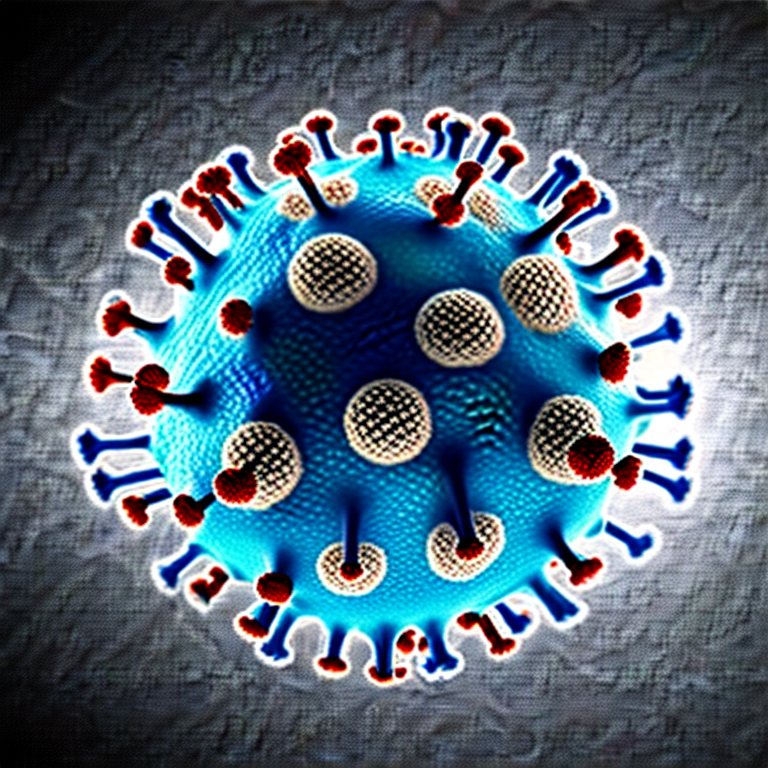
As the world continues to grapple with the COVID-19 pandemic, many people are experiencing a variety of symptoms, including fever, cough, and difficulty breathing. However, for those who suffer from trigeminal neuralgia, the pain caused by the virus can be even more unbearable. In this article, we will discuss the impact of COVID-19 on trigeminal neuralgia and offer some tips on how to alleviate the pain.
Introduction
The COVID-19 pandemic has affected millions of people worldwide, and those who suffer from trigeminal neuralgia are not immune to its impact. In this article, we will discuss the unique challenges faced by those with trigeminal neuralgia during the pandemic and offer some solutions to ease the pain.
What is Trigeminal Neuralgia?
Trigeminal neuralgia is a chronic pain condition that affects the trigeminal nerve, which is responsible for sending sensory information from the face to the brain. It causes sudden, intense facial pain that can be triggered by simple activities like brushing teeth or eating. The pain can be debilitating, and it can significantly impact a person’s quality of life.
Covid Aneeta Prem persceptive
Three years to this day after the world was locked down due to COVID-19, the virus has entered the Prem household. We have been careful to the point of paranoia, but today, a very faint line appeared on my COVID-19 test.
Every bone in my body is hurting, I’m shaking, and I have a temperature of 101.6. Having COVID-19 or suspected COVID-19 is bad enough, but every time I blow my nose or sneeze or cough, it seems to hurt and general neuralgia even more.
I’m on my knees in agony, screaming with pain. “Can anything be done to ease the pain?” I asked my GP in vain, and I’m told I should take paracetamol and ibuprofen. “There’s nothing else I can do for you,” they say. While these medications may be helping with the temperature and shakes, they certainly aren’t helping with the trigeminal neuralgia and facial pain I’m going through.
As someone who lives with trigeminal neuralgia and is also the CEO of Trigeminal Neuralgia Association UK, Aneeta Prem understands the impact that COVID-19 can have on those with the condition.
COVID-19 and Trigeminal Neuralgia: What You Need to Know
For people with trigeminal neuralgia, COVID-19 can be particularly challenging. The virus can cause inflammation and damage to nerves, which can exacerbate the symptoms of trigeminal neuralgia. Additionally, the pain and discomfort associated with COVID-19 can make it more difficult to manage trigeminal neuralgia symptoms.
As Aneeta Prem explains, “For those living with chronic pain conditions like trigeminal neuralgia, the COVID-19 pandemic has been particularly difficult. The pain and discomfort associated with COVID-19 can exacerbate existing symptoms and make it more challenging to manage the condition. It’s important for those with trigeminal neuralgia to take extra precautions to avoid getting sick.”
COVID-19 and Trigeminal Neuralgia
COVID-19 is a highly infectious disease that affects the respiratory system. However, many people with COVID-19 also experience neurological symptoms, including headaches, dizziness, and confusion. For those with trigeminal neuralgia, the virus can exacerbate the pain and make it even more challenging to manage.
How COVID-19 Affects Trigeminal Neuralgia
When a person contracts COVID-19, the virus attacks the body’s immune system, causing inflammation and swelling. Inflammation in the facial nerves can lead to an increase in trigeminal neuralgia symptoms, including facial pain, tingling, and numbness. Additionally, the coughing and sneezing associated with COVID-19 can aggravate the condition, leading to increased pain and discomfort.
Managing Trigeminal Neuralgia During COVID-19
Managing trigeminal neuralgia during the COVID-19 pandemic can be challenging, but there are some things that people can do to alleviate the pain. Here are some tips:
1. Take Your Medications as Prescribed
If you are taking medications for trigeminal neuralgia, make sure you continue to take them as prescribed. Do not stop taking your medications unless instructed to do so by your doctor.
2. Practice Good Hygiene
Practicing good hygiene can help prevent the spread of COVID-19 and also reduce the risk of aggravating trigeminal neuralgia symptoms. Wash your hands frequently, wear a mask when in public, and avoid touching your face.
3. Stay Active
Staying active can help reduce stress and improve overall health, which can help alleviate trigeminal neuralgia symptoms. Consider low-impact exercises like yoga or walking.
4. Apply Heat or Cold Therapy
Applying heat or cold therapy to the affected area can help alleviate pain and reduce inflammation. Try using a heating pad or a cold pack to see which works best for you.
5. Seek Medical Attention
If your trigeminal neuralgia symptoms are severe or you are experiencing new symptoms, seek medical attention immediately. Your doctor may be able to provide additional treatments to help manage your symptoms.
Conclusion
The COVID-19 pandemic has presented unique challenges for those with trigeminal neuralgia. However, by taking the necessary precautions and following the tips above, you can help manage your symptoms and reduce the impact of the virus on your condition. Remember to stay vigilant and seek medical attention if needed.





